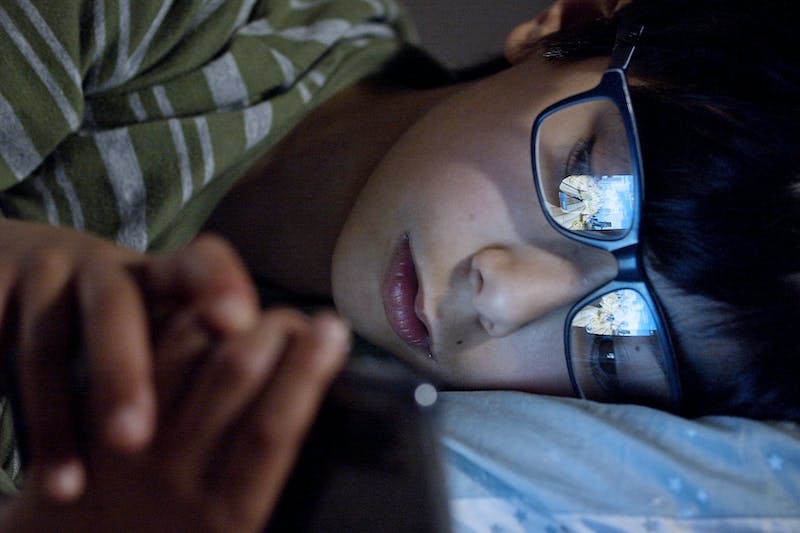“The internet is a double-edge sword. It can either enhance your life or consume it.”
Page contents
Why internet safety for kids is important
Due to insufficient internet safety measures, we find several instances of children encountering inappropriate content, facing cyberbullying, or falling victim to online predators.
These situations can lead to emotional distress, compromised privacy, and potential harm to a child’s overall well-being.
As parents, we must stay vigilant about internet safety for our kids and put efforts to reduce the associated risks. Internet safety for our kids is essential to protect them from harmful content, prevent cyberbullying, and ensure their privacy.
Let us see what’re the potential online dangers, the place where kids can encounter those dangers, and best practice recommendations to avoid them.
Inappropriate content
Exposure to inappropriate content, includes explicit materials, violence, or misinformation, which can negatively impact a child’s well-being. The most common forms of inappropriate content are:
- Content with vulgar language
- Content that encourages vandalism, crime, terrorism, racism, or suicide
- Pictures or videos showing violence to other people or animals
- Pornographic material
- Gambling sites
Where are the places children encounter these dangers
As children become more active online, it’s more likely that they’ll see something inappropriate. They might encounter inappropriate content while:
- Doing online research for a school project
- Using social media
- Playing online video games
- Watching streamed media and commercials advertisements that might play during the shows
How to avoid these dangers
The best thing we can do is review the content our children access to decide what is appropriate. In addition, you can try the following to avoid these online dangers:
- Enable parental controls on devices
- Use child-friendly search engines
- Educate children about responsible internet use and encourage them to ask for help if they come across inappropriate content
- Let your children become explorers of the online world with the help of this Google’s initiative, Be Internet Awesome.

Online grooming
Children may encounter individuals who pretend to be a friend to trick and harm them. They are people with malicious intent who attempt to exploit a child’s innocence or gather personal information, posing risks to their safety.
Where are the places children encounter these dangers
- Playing online games, a child might unintentionally reveal personal information to someone pretending to be their age or even agree to meet them in person.
- Groomers use fake profiles, shared interests, gifts, and compliments on social media to exploit a child’s limited emotional understanding and build trust.
- Groomers befriend multiple young individuals online, moving from friend requests to private chats through forums or games.
- Groomers might be previously encountered individuals in familial or social settings, employing the internet to further establish a connection with your child.
How to avoid these dangers
You can take several measures to help protect your children from the individual risks of online grooming:
- Teach children about online safety, emphasizing the importance of not sharing personal information.
- Maintain open communication so that they feel comfortable discussing their online interactions.
- Use privacy settings on social media and gaming platforms.
- Let your children become explorers of the online world with the help of this Google’s Google’s initiative, Be Internet Awesome.

Cyberbullying
Online platforms can become a breeding ground for cyberbullying, where children may face harassment, humiliation, or threats from peers. Cyberbullying, with its ability to rapidly reach a wide audience, involves repetitive sharing of hurtful content.
Where are the places children encounter these dangers
- In social media, someone posts hurtful comments or inappropriate content to harass a child.
- In online gaming, players can communicate through voice or text chat. This may involve verbal abuse, threats, or exclusion within the gaming community.
- A kid in a chat room might face ongoing bullying with mean comments, and the bullies could reveal the child’s private info or make the environment unfriendly.
- Cyberbullying via messaging apps can include sending threatening messages, spreading rumors, or sharing inappropriate content privately.
- A child could get mean emails that use hurtful words, make untrue claims, or try to harm their reputation, causing emotional and mental upset.
How to avoid these dangers
You can take several measures to help protect your children from the individual risks of cyberbullying:
- Maintain open and honest communication with your child. Encourage them to share their online experiences and feelings without fear of judgment.
- Educate children about cyberbullying, its impact, and the importance of reporting any incidents. Teach them how to identify and respond to such situations.
- Encourage empathy and respect for others both online and offline. Discuss the impact of hurtful words and actions, fostering a culture of kindness and inclusivity.
- Teach your child to be careful online by not sharing personal information, being mindful of what they post, and respecting others’ privacy.
- Instruct your child on how to report cyberbullying incidents to both you and the relevant online platforms. Emphasize the importance of seeking help when needed.

Conclusion
Internet safety is crucial for children of all age groups, but the approach may vary based on developmental stages. You should start paying attention to internet safety from a very young age, even as early as when a child begins using digital devices or engaging in online activities. By starting early and adapting guidance as children grow, you can instill a strong foundation for internet safety that evolves with your child’s development. Let us know how you safeguard your children on the internet.
For more internet related articles, check out our Digital awareness section!



Good work